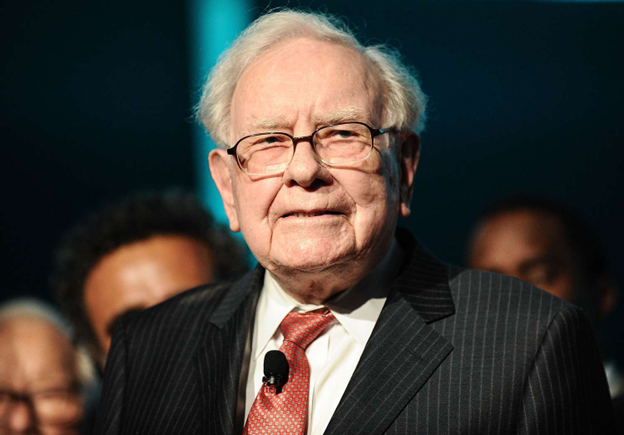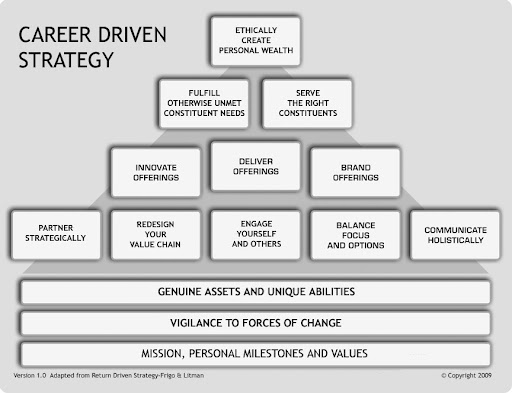The Stock that Keeps on Giving: Here's what Warren Buffett's second bet teaches you about investing…
| From the desk of Miles Everson: Happy Wednesday, everyone! I hope you’re all doing well. I’m excited to share with you a useful investment insight in today’s article from my friend and colleague, Professor Joel Litman. This is something we all have to keep in mind, especially as individuals looking to excel in the field of investing. Ready? Keep reading to know the importance of relating disciplined valuation and performance measurement to the tenets and foundations of RDS. |
The Stock that Keeps on Giving: Here's what Warren Buffett's second bet teaches you about investing… Where did you spend your money when you were a child? On your favorite delicacies? On your favorite comic books? On your favorite accessories? Most people, when they reflect on their childhood financial choices, remember spending their savings on toys, candy, or trivial indulgences. … but did you know that some of the greatest investors of all time took a different path at an early age, setting the stage for their future success? One such example, as highlighted by Professor Joel Litman , Chairman and CEO of Valens Research and Chief Investment Officer of Altimetry Financial Research , is Warren Buffett . In fact, his second-ever investment, which he started at an early age, still continues to yield incredible returns to this day! Buffett’s story serves as both a lesson and an inspiration for investors looking to identify businesses with long-term growth potential.
At just 11 years old, Buffett made his first investment in Cities Service , an oil and gas supplier… and like many novice investors, his journey began with challenges. After purchasing shares at USD 38.25, the company’s stock price quickly dropped by 30%. Feeling the pressure, particularly with his sister Doris as a co-investor, Buffett sold his shares at a slight profit as soon as the stock rebounded. However, what followed was a painful lesson: Cities Service shares skyrocketed to USD 202. This showed Buffett what patience and long-term thinking could have yielded for him as an investor. Determined to avoid the same mistake, Buffett spent the next two years refining his approach before making his second-ever investment. At 13 years old, he identified a company that would remain a powerful force for more than nine decades: Texas Pacific Land (TPL) . Even back in the 1940s, Buffett recognized something extraordinary about this business. TPL owned approximately 3 million acres in West Texas. More importantly, its charter was designed with shareholder wealth in mind—whenever land was sold, the proceeds were used to buy back shares. In Buffett’s eyes, if he lived to be 100, he could theoretically own the entire company. Though Buffett admitted at Berkshire Hathaway ’s 2022 annual meeting that he hasn’t quite reached full ownership of TPL, long-term shareholders have certainly had little to complain about. After all, Texas Pacific’s land—primarily located in the Permian Basin, one of the world’s richest oil and gas regions—has only grown in values. Unlike traditional landholders, TPL doesn’t just sell land; it also collects royalties on the oil and gas extracted from its properties. … and with minimal costs to operate, the bulk of this revenue flows directly back to shareholders, making it an investor’s dream. Can you count on your stock for the next 90 years of your life? Professor Litman underscored just how extraordinary TPL’s performance has been. While precise data on Buffett’s original holdings is unavailable, the company’s stock has soared by an astronomical 570,055% since the late 1960s. What’s more? When factoring in dividends, that figure surpasses 1,000,000%! These staggering numbers reflect the power of compounding and the value of identifying businesses with fundamentally sound financial structures. Additionally, TPL’s appeal extends beyond its historical performance. In recent years, the company has continued to innovate and adapt, securing its position as a prime investment opportunity. While its legacy in oil and gas royalties remains strong, TPL has also been exploring new opportunities that align with evolving market trends. Professor Litman even pointed out that the company’s land is highly suitable for renewable energy systems and data centers—industries that require vast, stable land resources with reliable power infrastructure. … and not only that! Even before TPL publicly acknowledged its interest in these new ventures, analysts and investment professionals already saw the potential. In June, Professor Litman and his team’s Hidden Alpha identified the company’s growth trajectory and recommended it to investors, anticipating significant market recognition. By the third quarter of the year, TPL confirmed that it had been actively developing these opportunities—news that sent the stock soaring. In just five months, investors who had positioned themselves early saw their holdings double in value. Clearly, TPL represents the ideal combination of stability and market-driven growth catalysts. Unlike speculative plays, the company is a “boring” business in the best possible way—one that consistently generates revenue while remaining underappreciated until the right moment. The upside of it? Smart investors who recognized its potential were able to capitalize on its upward momentum at the perfect time. — The lesson from Buffett’s second-ever investment is clear: The best opportunities are often hiding in plain sight, requiring patience, research, and the ability to recognize fundamental business strength. As Professor Litman stated, TPL remains a testament to long-term investing principles—a true Warren Buffett-style gem that continues to reward those who see beyond short-term volatility and focus on the bigger picture. Hope you’ve found this week’s insights interesting and helpful. EXCITING NEWS AHEAD The world of work has shifted, and there’s no going back. The barriers to entry have never been lower for talented professionals to work independently, and today’s massive external workforce is hardly a pandemic-produced fad. Business owners can only survive in the new work landscape by partnering with this deep talent pool. With decades of experience in both small-business entrepreneurship and executive management at PwC, I truly believe that the future of work is independent. With that, I’m happy to share with you that my book, co-authored with Walter Scott Lamb, is now available on Amazon! Free Birds Revolution: The Future of Work & The Independent Mind This new bestseller is an essential read for both independent professionals and corporate executives. Here, we provide educational and practical guides to unpack the ever-growing workforce and offer you crucial ways to become a client of choice. Click on the link above to order your copy. Let this bestselling book help you future-proof your career and organization in the new world of work. Stay tuned for next Wednesday’s The Independent Investor! This software has dominated the creative software world for decades because of its “sticky” business model. Learn more about this company and the importance of creating an enduring business model in next week’s article! |

Miles Everson
CEO of MBO Partners and former Global Advisory and Consulting CEO at PwC, Everson has worked with many of the world's largest and most prominent organizations, specializing in executive management. He helps companies balance growth, reduce risk, maximize return, and excel in strategic business priorities.
He is a sought-after public speaker and contributor and has been a case study for success from Harvard Business School.
Everson is a Certified Public Accountant, a member of the American Institute of Certified Public Accountants and Minnesota Society of Certified Public Accountants. He graduated from St. Cloud State University with a B.S. in Accounting.



